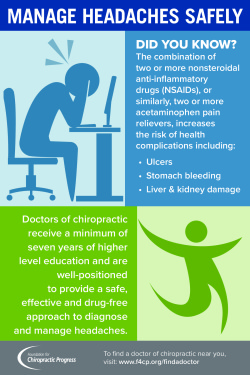Enhance Your Back By Taking A Look At Just How Your Consuming Habits Can Either Soothe Or Increase Your Pain-- Find The Appropriate Foods To Incorporate Into Your Diet Plan
Enhance Your Back By Taking A Look At Just How Your Consuming Habits Can Either Soothe Or Increase Your Pain-- Find The Appropriate Foods To Incorporate Into Your Diet Plan
Blog Article
Uploaded By-Bond Nicolajsen
When it comes to handling your neck and back pain, the food selections you make can significantly influence exactly how you really feel every day. Imagine being able to alleviate your pain merely by readjusting what you eat. By understanding the role of nutrition in neck and back pain management and understanding which foods to include or stay away from, you can take proactive actions in the direction of a much healthier and much more comfy lifestyle. The link in between nourishment and back health is much more profound than you might recognize-- let's discover just how particular foods can either soothe or worsen your pain in the back.
Importance of Nutrition in Pain In The Back
Nourishment plays a crucial duty in taking care of pain in the back. Your diet plan can substantially influence inflammation degrees and general discomfort degrees in your back. Taking in a balanced diet plan rich in nutrients like vitamins D and K, calcium, magnesium, and omega-3 fats can help reduce swelling and enhance bones, which are necessary for back health.
Additionally, preserving a healthy and balanced weight through appropriate nutrition can alleviate stress on your spine, decreasing the threat of back pain.
Furthermore, massage in washington heights like antioxidants located in fruits and vegetables can help fight oxidative stress and anxiety and promote recovery in the body, consisting of the back muscles and back.
On the other hand, taking in too much amounts of processed foods, sweet beverages, and harmful fats can add to inflammation and weight gain, exacerbating pain in the back.
Foods to Eat for Back Health And Wellness
To sustain a healthy and balanced back, including nutrient-rich foods right into your day-to-day dishes is essential. Including how long are chiropractic sessions in antioxidants like berries, spinach, and kale can help reduce swelling in your back, alleviating pain and discomfort. Omega-3 fats discovered in fatty fish such as salmon and mackerel have anti-inflammatory buildings that can benefit your back health.
Additionally, consuming nuts and seeds like almonds, walnuts, and chia seeds gives important nutrients like magnesium and vitamin E, which sustain muscle function and lower oxidative tension. Incorporating lean healthy proteins such as poultry, turkey, and tofu can assist in muscle mass repair service and maintenance, advertising a strong back.
Don't neglect to include milk or fortified plant-based choices for calcium to sustain bone health. Last but not least, moisturize with a lot of water to keep your spinal discs moistened and working ideally. By including these nutrient-dense foods in your diet regimen, you can nurture your back and support overall spine health and wellness.
Foods to Avoid for Pain In The Back
Opt for avoiding refined foods high in sugarcoated and trans fats when looking for relief from back pain. These types of foods can add to inflammation in the body, which may exacerbate neck and back pain. Say no to sweet treats like candy, pastries, and sweet beverages, along with junk food products like hamburgers, fries, and fried poultry that are frequently loaded with trans fats.
Additionally, steer clear of foods consisting of high levels of polished carbohydrates, such as white bread, pasta, and breads, as they can spike blood sugar level levels and potentially aggravate inflammation in the body.
It's likewise smart to limit your intake of foods high in hydrogenated fats, like red meat and full-fat dairy items, as they can contribute to swelling. Refined foods like deli meats, chips, and packaged treats are typically high in saturated fats and must be consumed in small amounts.
Verdict
Finally, taking notice of your diet and making smart food options can have a considerable influence on managing pain in the back. By integrating nutrient-rich foods like berries, fatty fish, nuts, and lean healthy proteins, and avoiding refined and sweet things, you can help reduce swelling and support overall back health. Remember, what you eat plays a crucial role in just how you really feel, so see to it to prioritize your nutrition for a much healthier back.
